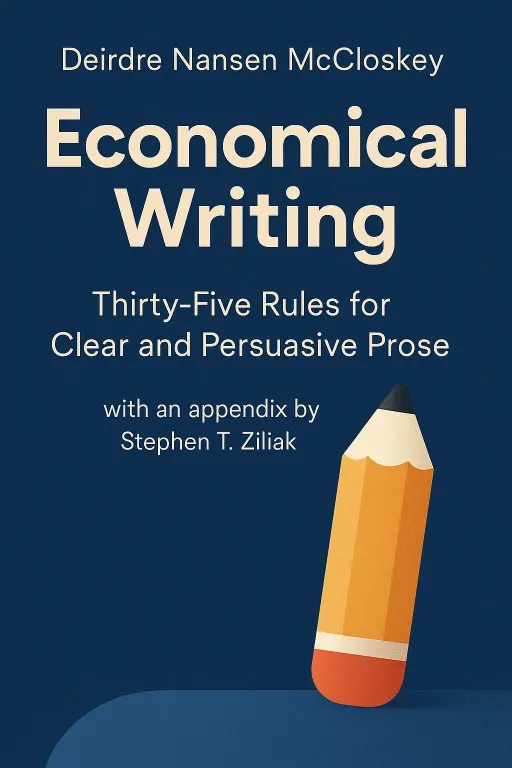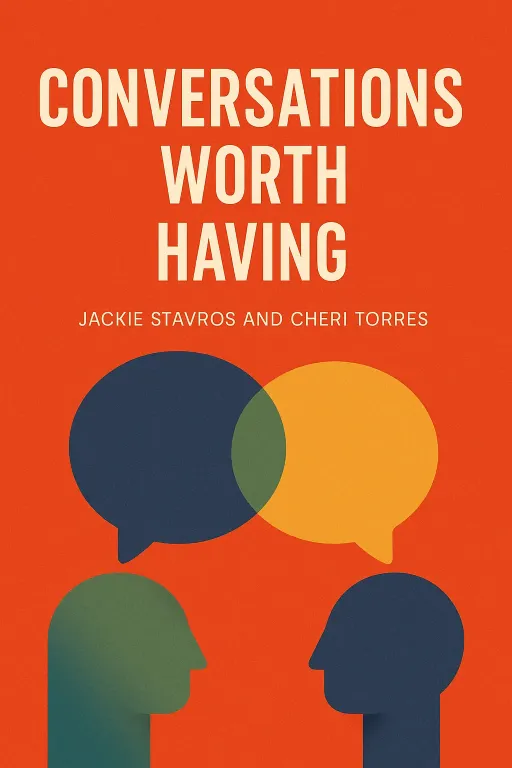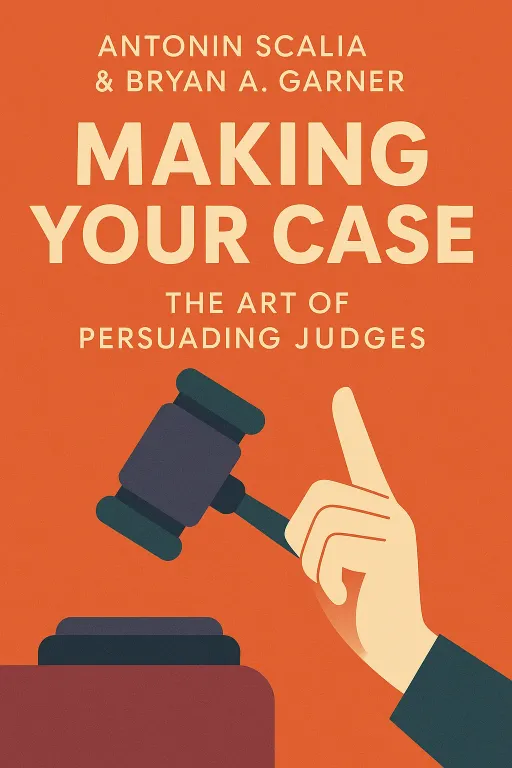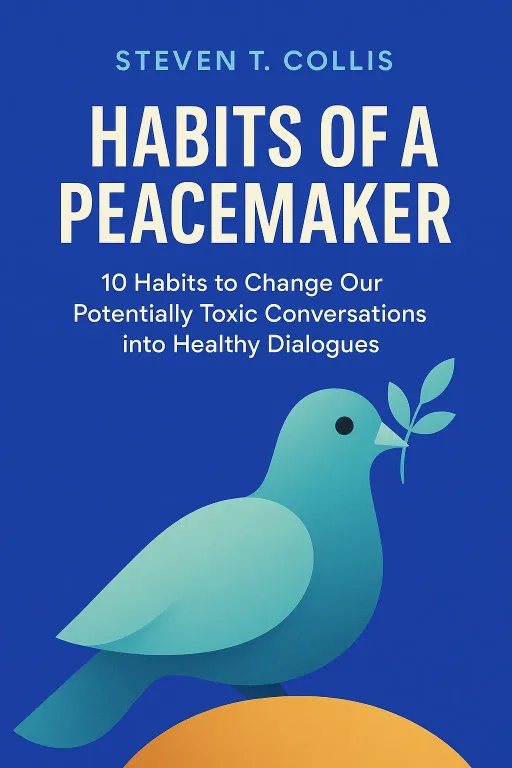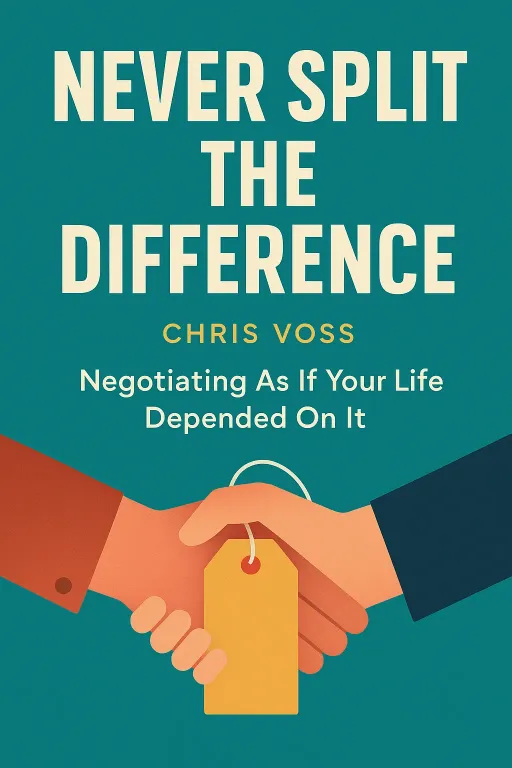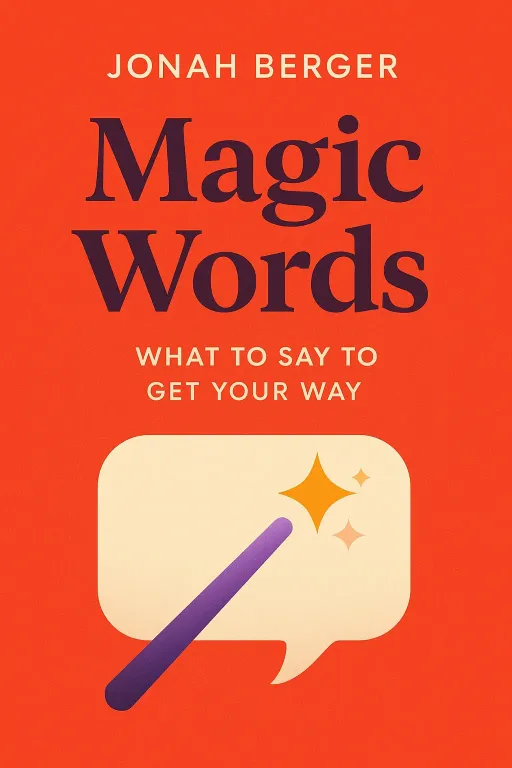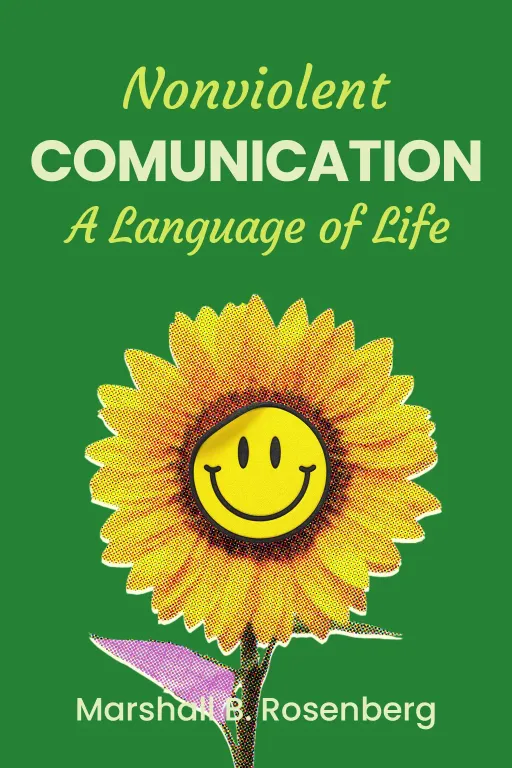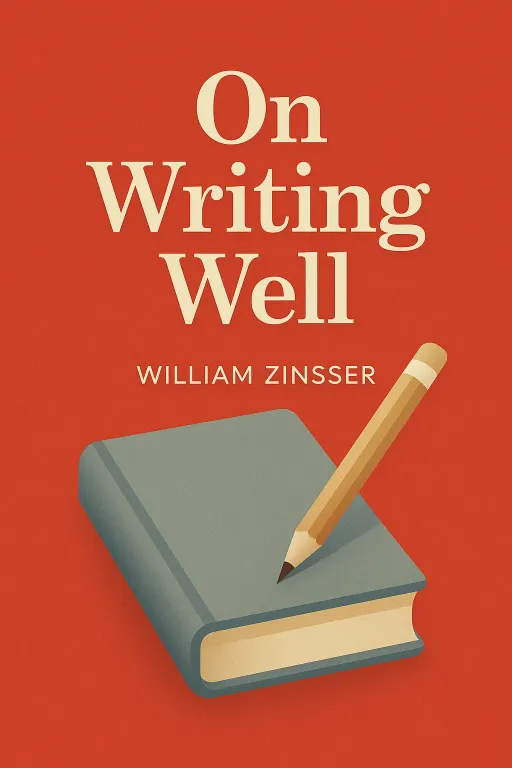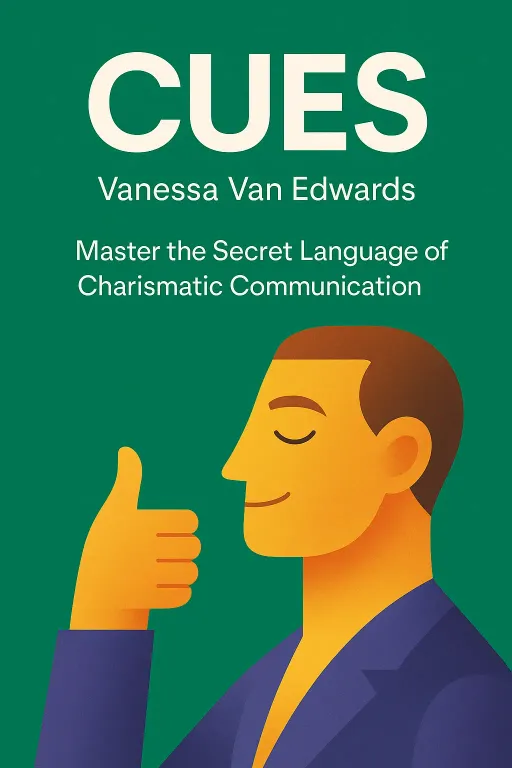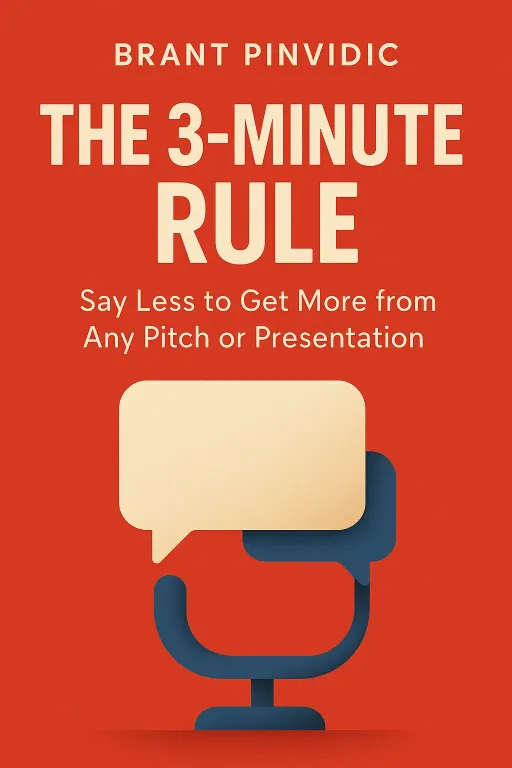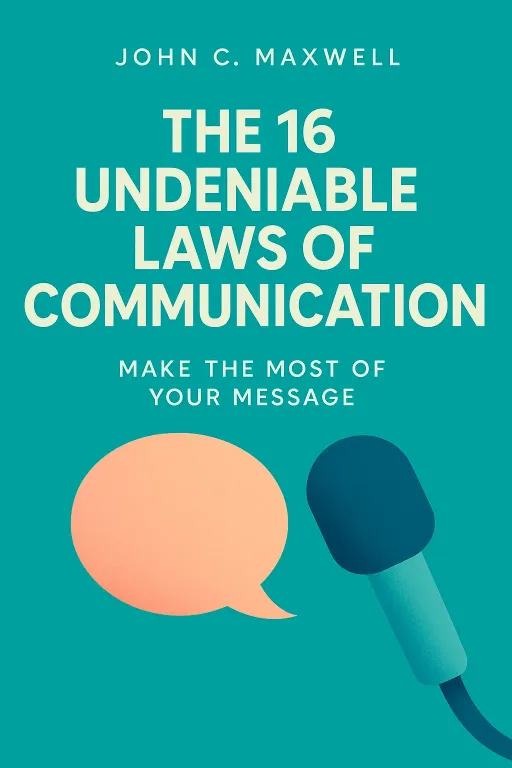
Your Life Is Your Loudest Message
11 minGolden Hook & Introduction
SECTION
Mark: Most people think great communication is about having the 'gift of gab.' What if the single most powerful communication tool has nothing to do with talking, and everything to do with something you did three days ago? Michelle: I love that, Mark, because it cuts right to the heart of what we're talking about today. We're diving into a book that’s been highly praised for its practicality, The 16 Undeniable Laws of Communication by John C. Maxwell. Mark: John C. Maxwell. I know that name. He's a huge figure in the leadership world, right? Michelle: Huge. And what makes his perspective so compelling is where it comes from. He's been a pastor for decades and has given, get this, over thirteen thousand speeches. So when he talks about 'laws,' he's not just being philosophical; he's talking about patterns he's seen work, or fail, thousands and thousands of time in front of live audiences. Mark: Thirteen thousand times. Wow. That’s not theory, that’s field data. So he’s basically seen it all. Michelle: He’s seen it all. And that brings us right to his first, and maybe most foundational law, which is all about what you did three days ago, last week, last year. It's the Law of Credibility.
The Inescapable Foundation: Why Who You Are Thunders Louder Than What You Say
SECTION
Mark: The Law of Credibility. That sounds a little like a corporate buzzword. What does he actually mean by that? Michelle: He puts it very simply: "Your most effective message is the one you live." It’s the idea that your actions thunder so loudly that people can't hear what you're saying to the contrary. And he illustrates this with one of the most powerful stories I've ever heard, about Mahatma Gandhi. Mark: Oh, I'm ready for this. Michelle: A woman traveled a great distance with her young son to see Gandhi. She was worried because the boy was eating way too much sugar, and it was affecting his health. She bows before Gandhi and says, "Master, please, tell my son to stop eating sugar." Gandhi looks at the boy, then back at the mother, and says, "Come back in three days." Mark: Three days? That’s it? After she traveled all that way? Michelle: Exactly. The woman is confused, but she trusts him. She takes her son, leaves, and three days later, they make the journey all over again. She presents her son to Gandhi once more. This time, Gandhi looks the little boy right in the eye and says, "Son, you must stop eating sugar." The boy nods, completely convinced. The mother is grateful, but she has to ask. "Master," she says, "why did you make us wait three days? You could have said the same thing the first time." Mark: Yeah, what's the deal? Michelle: And Gandhi replies, "Three days ago, I was still eating sugar myself." Mark: Whoa. Chills. That is… profound. He couldn't ask the boy to do something he wasn't willing to do himself. Michelle: That's the Law of Credibility in its purest form. He had to earn the moral authority to deliver the message. Mark: Okay, but that's Gandhi. He’s on another level. How does this apply to a regular person who isn't a saint? What if you're a manager trying to lead a team meeting, and you know you're not perfect? Do you just stay silent? Michelle: That’s the perfect question. It’s not about being perfect; it’s about being authentic. This ties into his next law, the Law of Conviction. Maxwell quotes the entrepreneur Ed Mylett, who says something brilliant: "Everybody you lead does not have to believe what you’re saying! They only need to believe that YOU believe what you’re saying." Mark: Huh. So it's not about being a flawless guru. It's about the audience sensing that your belief is genuine. Michelle: Precisely. Your conviction becomes contagious. If you're passionate and you truly believe your message will help them, they feel that energy. Mark: But can't you just fake conviction? We see it in politics and sales all the time. That big, booming, confident delivery. Michelle: You can try, but people have a very sensitive radar for inauthenticity. Winston Churchill said the orator must be swayed by the emotion himself before he can inspire it in others. He said, "Before he can move their tears, his own must flow." You can't fake that kind of resonance. It has to come from a real place. Your life has to be, at least directionally, aligned with your words. Mark: Directionally aligned. I like that. It feels more achievable than Gandhi-level perfection. So, it starts with who you are. Your credibility and your conviction are the price of entry. Michelle: They are the entire foundation. Without them, the most eloquent speech is just noise. But once you have that foundation, you have to build a bridge to your audience.
Building the Human Bridge: The Mechanics of Genuine Connection
SECTION
Mark: A bridge. Okay, what's that made of? Michelle: It’s made of connection and story. This is where Maxwell’s Law of Connecting comes in. He says communicators know it’s all about others. He quotes a famous line: "People do not care how much you know until they know how much you care." Mark: I’ve heard that before, and it always hits home. It’s so easy to get caught up in proving how smart you are, showing off your data and your slides. Michelle: And that’s a performance. Connection is a relationship. Maxwell learned this lesson the hard way from his own father. When he was a college freshman, his dad, who was the college president, took him and four friends on a weekend trip. The group voted on what to do, and Maxwell was outvoted. So he spent the whole trip moping and grumbling. Mark: Oh, I’ve been that guy. Not my proudest moments. Michelle: We all have. His father pulled him aside and gave him a lesson that changed his life. He told him, "It's not about you; it's about others. Get over yourself!" And then he grounded him for a month. But the punishment was unique. For thirty days, his only task was to find a way to add value to someone else, every single day, without expecting anything back. Mark: Wow. That’s not a punishment, that’s training. He was forced to practice empathy. Michelle: Exactly. He was forced to build that bridge. And the most powerful tool for building that bridge is the Law of Storytelling. The data on this is just staggering. The cognitive psychologist Jerome Bruner found that people are twenty-two times more likely to remember a fact when it has been wrapped in a story. Mark: Twenty-two times! That’s not a small difference. That’s a superpower. It’s so true, too. I can't remember the bullet points from a presentation last week, but I absolutely remember the story the speaker told about their first failed business. Michelle: Our brains are literally wired for narrative. A story engages the emotional and visual parts of our brain, not just the analytical part. It creates a shared experience. Mark: So what makes a story 'work'? Is there a formula to it? Michelle: Maxwell has a simple acronym: SHARE. S is for Show, don't just tell. Paint a picture with details. H is for Help—the story should have a point that helps the audience. A is for Amplify, to spark their imagination. R is for Relate, connecting to a universal emotion. And E is for Enjoy—make it enjoyable to listen to. Mark: Show, Help, Amplify, Relate, Enjoy. That’s actually a really useful checklist. It’s about making the story a gift to the audience, not a monument to yourself. Michelle: That’s the perfect way to put it. It’s a gift. But even with a great story and a solid connection, you can still lose the room.
The Unforgettable Delivery: Why Simplicity and Surprise Are Your Secret Weapons
SECTION
Mark: Okay, so you're credible, you're telling a great story... but you can still be boring. I've definitely seen that happen. The person means well, but you’re just fighting to stay awake. Michelle: (laughs) Absolutely. And that’s where the craft of delivery comes in, starting with the Law of Simplicity. Maxwell says, "Communicators take something complicated and make it simple." This isn't about dumbing things down; it's about achieving a profound level of clarity. It's actually incredibly hard work. Mark: It’s the difference between simple and simplistic. Simplistic ignores the complexity, but simple masters it. Michelle: Yes! There’s a fantastic story about the legendary football coach Vince Lombardi. He was at a coaching convention, and all the other coaches were on stage with these incredibly complex diagrams of their plays, showing off their genius. When it was Lombardi's turn, he just stood up and said, "Gentlemen, I only have two strategies. My offensive strategy is simple: when we have the ball, we aim to knock the other team down. My defensive strategy is similar: when the other team has the ball, we aim to knock all of them down." Mark: (laughing) That’s brilliant! He cut through all the noise and got to the absolute core of the game. And he won everything. Michelle: He won everything. That’s effective simplicity. The opposite is what you see in that old joke about the hot air balloonist who’s lost. He shouts down to a woman on the ground, "Where am I?" She looks up and says, "You're in a hot air balloon, 30 feet above this field." He says, "You must be an engineer." She says, "I am! How did you know?" He says, "Because your information is technically correct, but completely useless." Mark: (laughs) I feel seen. That’s so many corporate meetings. All facts, no meaning. Michelle: And to avoid that, you need one more law: The Law of the Change-Up. Maxwell’s line for this is blunt: "Sameness is the death of communication." Our brains are wired to notice change. If everything is monotonous—your tone, your pace, your position on stage—the audience’s brain literally starts to tune out. Mark: It’s a survival mechanism. If nothing’s changing, there’s no threat, so we can conserve energy. Michelle: And fall asleep. There's a hilarious story about an old-time preacher giving a fiery sermon against alcohol. He's shouting, "If I had all the beer in the world, I'd throw it in the river! If I had all the wine, I'd throw it in the river! If I had all the whiskey, I'd throw it in the river!" The crowd is roaring "Amen!" He finishes, and the song leader steps up and, without missing a beat, announces, "For our closing hymn, let's all sing 'Shall We Gather at the River.'" Mark: (laughing) Oh no! That’s a catastrophic failure of timing! Michelle: A total failure! But it proves the point. Timing is a change-up. A pause is a change-up. Johnny Carson was a master of this. When a joke bombed, he would just stand there in silence, and the silence was funnier than the joke. Mark: So a 'change-up' isn't just about telling jokes. What else counts? Michelle: It can be your vocal tone. Research from Stanford shows that just a 10 percent increase in vocal variety has a significant impact on audience retention. It can be moving to a different spot on the stage. It can be shifting from talking to asking a question. Anything that breaks the pattern and re-engages the brain.
Synthesis & Takeaways
SECTION
Mark: You know, putting this all together, it feels like it’s not a list of random tricks. It's a sequence. You have to be the message first with your credibility, then you have to build a bridge to the other person with connection and story, and only then do you worry about the polish of the delivery with simplicity and change-ups. Michelle: Exactly. And the thread connecting all of it is generosity. There’s a generosity of character, where you do the hard work to live your message. There's a generosity of spirit, where you focus on connecting with the audience. And there's the generosity of effort, where you work to make your message clear, simple, and engaging for them. The ultimate goal, as Maxwell says, isn't just to be heard, but to inspire action. Mark: It reframes communication from a performance to an act of service. Michelle: It does. So for everyone listening, here's a simple action. The next time you have to communicate something important—whether it’s a big presentation or just a tough conversation with your teenager—ask yourself one question from today: "Do I truly believe this?" Start there. That's the first and most undeniable law. Mark: That’s a powerful starting point. We'd love to hear what you all think. What's the best story you've ever heard a speaker tell, one that really stuck with you? Find us on our socials and share it. Let's build a library of great examples together. Michelle: This is Aibrary, signing off.
